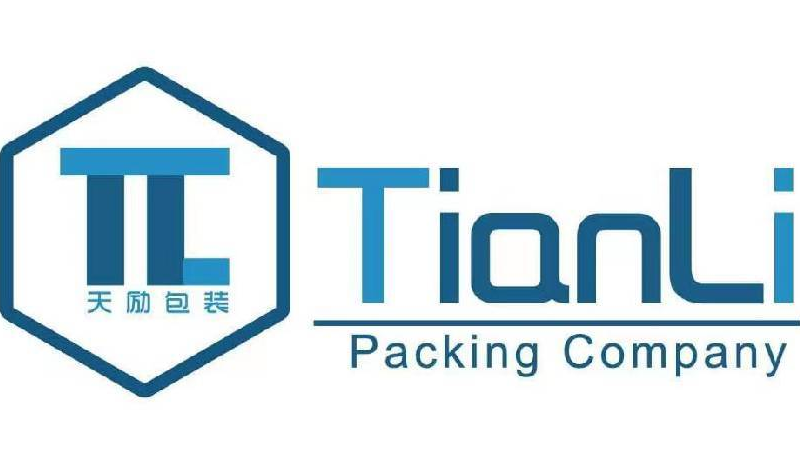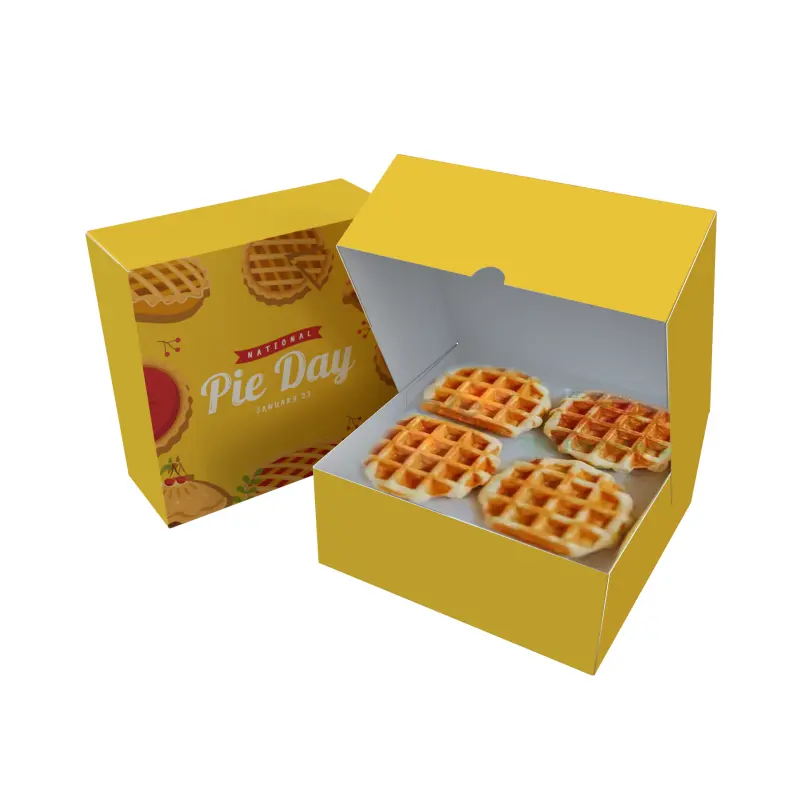ความสำคัญของการเฉพาะทางใน อาหาร ความเชี่ยวชาญด้านบรรจุภัณฑ์
ความรู้เฉพาะทางตามอุตสาหกรรมเพื่อความปลอดภัยของอาหาร
ผู้เชี่ยวชาญด้านบรรจุภัณฑ์อาหารต้องมีความเข้าใจอย่างถ่องแท้เกี่ยวกับกฎระเบียบด้านความปลอดภัยของอาหาร ตั้งแต่แนวทางขององค์การอาหารและยา (FDA) ไปจนถึงแนวทางปฏิบัติ HACCP ทำไมเรื่องนี้ถึงสำคัญ? เหตุผลหลักก็คือระเบียบข้อกำหนดเหล่านี้มีขึ้นเพื่อป้องกันปัญหาการปนเปื้อน และรักษาความปลอดภัยให้ผู้บริโภคทุกครั้งที่เปิดบรรจุภัณฑ์ หากบริษัทละเลยมาตรฐานเหล่านี้ ก็อาจเกิดปัญหาใหญ่ขึ้นอย่างรวดเร็ว เราเคยเห็นแบรนด์ต่างๆ ได้รับผลกระทบหนักจากกรณีต้องเรียกคืนสินค้า ซึ่งนำมาซึ่งค่าใช้จ่ายมหาศาล รวมถึงความเสียหายทางชื่อเสียงอย่างรุนแรง องค์การอาหารและยา (FDA) รายงานไว้ชัดเจนว่าบรรจุภัณฑ์ที่บกพร่องมีบทบาทสำคัญในหลายกรณีของโรคที่เกิดจากอาหารเป็นพิษ ดังนั้นความรู้เฉพาะทางจึงมีความสำคัญอย่างยิ่ง บริษัทบรรจุภัณฑ์ที่มีประสบการณ์ลึกซึ้งในอุตสาหกรรมจะเข้าใจเป็นอย่างดีว่าวัสดุชนิดใดเหมาะสมที่สุดสำหรับการใช้งานแต่ละประเภท พร้อมทั้งเป็นไปตามข้อกำหนดด้านความปลอดภัยทุกประการ และยังคงทนพอที่จะวางขายบนชั้นวางสินค้าได้ยาวนาน การเลือกใช้วัสดุที่ดีขึ้นหมายถึงของเสียที่น้อยลงจากการที่สินค้าถูกทิ้งไว้นานเกินไป และยังช่วยลดผลกระทบต่อสิ่งแวดล้อม พร้อมสร้างความไว้วางใจในแบรนด์ที่แข็งแกร่งขึ้นในระยะยาว
ประสบการณ์ในการออกแบบกล่องอาหารและการทำงาน
การออกแบบกล่องอาหารที่ดี ต้องหาจุดสมดุลระหว่างความสวยงามและการใช้งานที่ดี เพราะทั้งสองปัจจัยนี้มีผลต่อความรู้สึกของลูกค้า และความสามารถในการรักษาความสดของเนื้อหาขณะจัดส่ง ผู้ผลิตที่มีประสบการณ์สูงต่างเข้าใจเรื่องสำคัญต่าง ๆ เช่น การรักษาอุณหภูมิของสินค้าให้เย็นอยู่เสมอ ทำให้กล่องมีความแข็งแรงทนทาน และป้องกันความชื้นไม่ให้เข้าไปภายใน กล่องที่ดีจึงช่วยให้สินค้าที่บรรจุมาถึงมือผู้บริโภคในสภาพที่เหมาะสมที่สุด วิธีการผลิตและออกแบบกล่องเหล่านี้ยังมีผลต่อจำนวนผู้ซื้อและมุมมองหลังการใช้งานของลูกค้าอีกด้วย ลองดูบริษัทที่ลงทุนในบรรจุภัณฑ์ที่ดีขึ้น — เราเห็นยอดขายของพวกเขาเพิ่มขึ้น และชื่อเสียงของแบรนด์ก็เป็นที่รู้จักมากขึ้นในตลาด กล่องที่ดูดีและใช้งานได้ดีนั้นไม่เพียงแค่ช่วยขายสินค้าเท่านั้น แต่ยังสื่อสารกับผู้บริโภคได้ว่าบริษัทใส่ใจในการส่งมอบคุณค่าที่คุ้มค่าแก่การซื้อ และยืนหยัดในสิ่งที่นำเสนอออกมา
ความสามารถในการปรับตัวตามแนวโน้มของอุตสาหกรรมอาหาร
การปรับตัวให้ทันกับแนวโน้มที่เปลี่ยนแปลงในภาคส่วนอาหารนั้นมีความสำคัญอย่างมาก หากบริษัทต้องการรักษาความน่าสนใจไว้ การสามารถปรับเปลี่ยนแนวทางในการบรรจุภัณฑ์สำหรับสิ่งต่างๆ เช่น ทางเลือกเพื่อสุขภาพ ทางเลือกสำหรับผู้บริโภคที่เป็นมังสวิรัติ และอาหารว่างแบบพกพาได้กลายเป็นสิ่งที่สำคัญมากขึ้นเรื่อยๆ ในช่วงไม่กี่ปีที่ผ่านมา ผู้ผลิตที่คอยจับตาดูแนวโน้มของตลาดมักจะสามารถตอบสนองสิ่งที่ผู้บริโภคต้องการในปัจจุบัน รวมถึงเข้าร่วมในความเคลื่อนไหวเพื่อสิ่งแวดล้อมด้วย ลองดูบริษัทที่มีแนวคิดล้ำหน้า - บริษัทที่ปรับกลยุทธ์ด้านบรรจุภัณฑ์ตั้งแต่เนิ่นๆ มักจะกลายเป็นผู้นำตลาดในที่สุด ภูมิทัศน์ของอุตสาหกรรมอาหารยังคงเปลี่ยนแปลงอยู่ตลอดเวลา ดังนั้นธุรกิจที่ยังคงความยืดหยุ่นไว้โดยทั่วไปมักจะได้เปรียบ เนื่องจากพวกเขาพร้อมเมื่อมีสิ่งใหม่ๆ เกิดขึ้น และสามารถรักษาความได้เปรียบเหนือคู่แข่งที่พยายามตามให้ทัน
ความสามารถในการปรับแต่งตามความต้องการเฉพาะของแบรนด์
ปรับแต่งตามความต้องการ กล่องอาหาร การกำหนดขนาดและความออกแบบโครงสร้าง
โลกของการบรรจุภัณฑ์อาหารเปลี่ยนแปลงไปอย่างรวดเร็ว และบริษัทต่างๆ ต้องการกล่องที่มีขนาดและโครงสร้างตรงกับข้อกำหนดเฉพาะของตนเอง เมื่อแบรนด์ต่างๆ ได้ขนาดบรรจุภัณฑ์ที่แม่นยำพอดี ก็จะช่วยประหยัดค่าใช้จ่ายด้านวัสดุและค่าขนส่ง พร้อมทั้งลดขยะที่เกิดขึ้น ตัวอย่างเช่น บริษัทผลิตอาหารว่างมักต้องการรูปทรงบรรจุภัณฑ์ที่แตกต่างกันขึ้นอยู่กับว่ากำลังบรรจุผลิตภัณฑ์เป็นมันฝรั่งทอดหรือซีเรียลบาร์ โครงสร้างการออกแบบที่ดีก็มีความสำคัญเช่นกัน กล่องที่ถูกออกแบบมาเฉพาะสำหรับอาหารบางชนิดไม่เพียงแต่ทำให้ลูกค้าใช้งานสะดวกขึ้น แต่ยังสร้างความประทับใจที่ดีให้กับผู้บริโภคหลังจากเปิดบรรจุภัณฑ์ด้วย จากการรายงานล่าสุดของ Food Packaging Forum พบว่า รายละเอียดการปรับแต่งเหล่านี้สามารถดึงดูดความสนใจได้จริง และช่วยเสริมความสัมพันธ์ระยะยาวระหว่างลูกค้ากับแบรนด์ เนื่องจากผู้คนมักจดจำความรู้สึกเมื่อได้สัมผัสผลิตภัณฑ์ครั้งแรก นอกจากนี้ บรรจุภัณฑ์ที่เหมาะสมยังช่วยปกป้องสินค้าในระหว่างการขนส่ง และทำให้สินค้าดูน่าสนใจเมื่อวางอยู่บนชั้นวางขาย ซึ่งเป็นปัจจัยที่ช่วยเพิ่มยอดขายในระยะยาว
ตัวเลือกการสร้างแบรนด์และการติดฉลากแบบกำหนดเอง
การเลือกแนวทางด้านแบรนด์และฉลากสินค้ามีความสำคัญอย่างมากเมื่อสินค้าต้องการโดดเด่นในตลาดที่เต็มไปด้วยสินค้าหลากหลายชนิด งานออกแบบกราฟิกที่เหมาะสมรวมถึงตราสัญลักษณ์พิเศษต่างๆ จะช่วยให้สินค้าสามารถดึงดูดความสนใจจากผู้บริโภคได้ แม้มีสินค้าคล้ายกันวางเรียงรายอยู่บนชั้นวางขายมากมาย เมื่อฉลากสินค้าเป็นไปตามมาตรฐานความปลอดภัยด้านอาหารและแสดงข้อมูลทางโภชนาการที่ถูกต้อง ผู้บริโภคมักมีความไว้วางใจและรู้สึกมั่นใจในสิ่งที่ตนเองกำลังซื้อ บรรจุภัณฑ์ที่สะท้อนภาพรวมของแบรนด์จะช่วยให้ผู้คนจดจำและแยกแยะสินค้าได้รวดเร็วขึ้น หลังจากที่ได้เห็นเพียงครั้งเดียว การผสมผสานองค์ประกอบทั้งหมดนี้เข้าด้วยกันทำให้บรรจุภัณฑ์ไม่ใช่แค่เพียงสิ่งที่ใช้ปกป้องสินค้าระหว่างการขนส่งเท่านั้น แต่ยังทำหน้าที่เสมือนพนักงานขายเงียบที่บอกผู้บริโภคอย่างชัดเจนว่า พวกเขาจะได้รับคุณภาพและความประทับใจแบบใดจากสินค้าภายใน
MOQ ที่ยืดหยุ่นสำหรับคำสั่งซื้อขนาดเล็กและขนาดใหญ่
ปริมาณการสั่งซื้อขั้นต่ำ (MOQs) ที่มีความยืดหยุ่นนั้นมีความสำคัญอย่างมากเมื่อต้องตอบสนองความต้องการที่หลากหลาย ตั้งแต่ธุรกิจขนาดเล็กที่เพิ่งเริ่มต้นไปจนถึงองค์กรใหญ่ที่มีมานานหลายทศวรรษ ธุรกิจขนาดเล็กได้รับประโยชน์เป็นพิเศษ เนื่องจากสามารถเข้าถึงบรรจุภัณฑ์คุณภาพดีโดยไม่ต้องจ่ายเงินก้อนโตในตอนเริ่มต้น เพื่อทดลองตลาดหรือขยายธุรกิจอย่างค่อยเป็นค่อยไป ในขณะที่บริษัทใหญ่ ๆ ต้องการการสั่งซื้อจำนวนมากเพื่อลดต้นทุนและรักษาความราบรื่นของห่วงโซ่อุปทานให้ทำงานได้อย่างไม่มีสะดุด สมาคมบรรจุภัณฑ์เพิ่งทำการวิจัยล่าสุดและพบข้อมูลที่น่าสนใจว่า บริษัททุกขนาดมักมีทัศนคติเชิงบวกต่อซัพพลายเออร์ที่ยินดีปรับลดข้อกำหนด MOQ ตามความเหมาะสมในแต่ละช่วงเวลา การมีปฏิสัมพันธ์ที่ยืดหยุ่นเช่นนี้ช่วยสร้างความสัมพันธ์ที่ดีระหว่างผู้จัดหาและลูกค้า ซึ่งส่งผลให้ทุกฝ่ายสามารถขยายการดำเนินงานได้ตามต้องการ โดยไม่ติดขัดจากข้อจำกัดที่ตายตัว
การใช้วัสดุรีไซเคิลและย่อยสลายได้
การเปลี่ยนไปใช้วัสดุรีไซเคิลและย่อยสลายได้ทางชีวภาพสำหรับบรรจุภัณฑ์อาหารนั้น ช่วยลดผลกระทบต่อสิ่งแวดล้อมได้อย่างมาก ในปัจจุบันนี้ ผู้บริโภคต้องการทางเลือกที่ยั่งยืนมากขึ้น ดังนั้นการเปลี่ยนแปลงนี้จึงมีความหมายอย่างยิ่ง ข้อมูลจากสำนักคุ้มครองสิ่งแวดล้อม (EPA) ระบุว่า เมื่อธุรกิจใช้วัสดุที่สามารถนำกลับมารีไซเคิลใหม่ได้ จะช่วยลดปริมาณขยะที่ส่งไปฝังกลบได้อย่างมาก ซึ่งสอดคล้องกับแนวคิดเศรษฐกิจหมุนเวียน (Circular Economy) ลองดูแนวโน้มที่เกิดขึ้นในอุตสาหกรรมในปัจจุบัน มีหลายองค์กรที่เริ่มลดขยะโดยการเลือกใช้บรรจุภัณฑ์ที่เป็นมิตรกับสิ่งแวดล้อมแล้ว เมื่อบริษัทนำเสนอวัสดุที่เป็นมิตรต่อสิ่งแวดล้อมผ่านการโฆษณาและการส่งเสริมการขาย จะช่วยเพิ่มภาพลักษณ์ขององค์กรและดึงดูดลูกค้าที่ใส่ใจต่อการอนุรักษ์สิ่งแวดล้อม วิธีการนี้ยังช่วยให้บริษัทโดดเด่นจากคู่แข่งที่ยังไม่ได้ดำเนินการในลักษณะเดียวกัน
วิธีการผลิตที่ประหยัดพลังงาน
การลดการใช้พลังงานในระหว่างการผลิตช่วยให้ธุรกิจประหยัดค่าใช้จ่าย พร้อมทั้งเป็นมิตรกับโลก ซึ่งเป็นสิ่งที่สำคัญอย่างยิ่งต่อบุคคลที่ใส่ใจสิ่งแวดล้อม บริษัทต่างๆ หันไปใช้สิ่งต่างๆ เช่น แผงโซลาร์เซลล์ และเครื่องจักรรุ่นใหม่ที่ไม่ใช้พลังงานมากเกินไป เพื่อแสดงให้เห็นว่าพวกเขามุ่งมั่นในการดำเนินธุรกิจอย่างยั่งยืน งานวิจัยชี้ให้เห็นว่า บริษัทที่เลือกแนวทางนี้มักจะเห็นผลประกอบการเติบโตควบคู่ไปกับความสัมพันธ์ที่แข็งแกร่งขึ้นกับลูกค้า สิ่งที่ทำให้แนวทางเหล่านี้น่าสนใจคือ สามารถลดค่าใช้จ่ายในระดับโรงงานผลิต และสร้างภาพลักษณ์ที่ดีในเรื่องความยั่งยืน และพูดตามจริงแล้ว ผู้บริโภคในปัจจุบันส่วนใหญ่ต้องการสนับสนุนแบรนด์ที่มีค่านิยมตรงกันกับตนเองในเรื่องการปกป้องโลกใบนี้
ใบรับรองสำหรับการปฏิบัติตามข้อกำหนดสิ่งแวดล้อม
การได้รับการรับรองความสอดคล้องด้านสิ่งแวดล้อม เช่น ISO 14001 แสดงให้เห็นว่าบริษัทต่างๆ จริงจังกับการดำเนินธุรกิจที่เป็นมิตรต่อสิ่งแวดล้อม และยังช่วยเสริมสร้างจุดเด่นให้กับแบรนด์ในตลาดที่มีการแข่งขันสูงในปัจจุบัน การรับรองเหล่านี้บ่งชี้ว่าองค์กรปฏิบัติตามข้อกำหนดด้านสิ่งแวดล้อมที่เกี่ยวข้อง ซึ่งช่วยลดปัญหาทางกฎหมาย และทำให้การดำเนินงานเป็นไปอย่างรับผิดชอบ ผู้บริโภคในปัจจุบันก็ให้ความสำคัญกับฉลากความยั่งยืนของสินค้ามากขึ้นด้วย จากการศึกษาล่าสุดพบว่าผู้บริโภคส่วนใหญ่เลือกซื้อสินค้าที่มีใบรับรองด้านสิ่งแวดล้อมที่ได้รับการยอมรับ มากกว่าสินค้าที่ไม่มีการรับรองดังกล่าว สำหรับธุรกิจที่ต้องการสร้างความเชื่อมั่นกับลูกค้าที่ใส่ใจสิ่งแวดล้อม การได้รับการรับรองไม่เพียงแค่เป็นประโยชน์ต่อโลกเท่านั้น แต่ยังช่วยสร้างความน่าเชื่อถือให้กับแบรนด์ในหมู่ผู้บริโภคที่ต้องการมั่นใจว่าการใช้จ่ายของพวกเขานั้นสนับสนุนแนวทางปฏิบัติที่มีความรับผิดชอบ
โครงสร้างราคาและการยืดหยุ่นในการจัดส่ง
ส่วนลดสำหรับคำสั่งซื้อจำนวนมากและเงื่อนไขการชำระเงิน
บริษัทที่มีความสนใจในการลดค่าใช้จ่ายด้านบรรจุภัณฑ์ มักจะให้ความสนใจในแบบจำลองราคาที่เสนอระดับส่วนลดที่แตกต่างกันตามปริมาณการซื้อ เมื่อธุรกิจใช้ประโยชน์จากข้อตกลงการซื้อสินค้าเป็นจำนวนมากเหล่านี้ จะช่วยให้ผู้จัดจำหน่ายสามารถดำรงธุรกิจได้อย่างมั่นคง พร้อมทั้งควบคุมค่าใช้จ่ายของตนเองให้อยู่ในระดับที่เหมาะสม การจัดการระบบการชำระเงินอย่างชัดเจนนั้นเป็นสิ่งที่มาคู่กับส่วนลดเหล่านี้ ช่วยให้การทำธุรกรรมดำเนินไปอย่างราบรื่น และเสริมสร้างความสัมพันธ์ที่แข็งแกร่งระหว่างผู้ซื้อกับผู้ขาย ซึ่งเป็นสิ่งที่ทำให้ห่วงโซ่อุปทานทำงานได้อย่างไม่มีสะดุด โดยเฉพาะในภาคการผลิตมักพบเห็นปรากฏการณ์นี้เกิดขึ้นบ่อยครั้ง ตัวอย่างเช่น โรงงานแปรรูปอาหารที่ทำงานร่วมกับผู้จัดจำหน่ายวัสดุบรรจุภัณฑ์ มักสามารถเจรจาต่อรองราคาให้ดีขึ้นได้ เมื่อสั่งซื้อในปริมาณมาก ผู้จัดจำหน่ายที่กำหนดนโยบายการชำระเงินไว้อย่างชัดเจนและยืดหยุ่น มักจะได้รับการยอมรับให้เป็นพันธมิตรทางธุรกิจมากกว่าแค่ผู้ขายสินค้าธรรมดา ความไว้วางใจจึงมีความสำคัญอย่างมากในการทำธุรกรรมทางธุรกิจ และจุดเริ่มต้นของความไว้วางใจนั้นก็คือวิธีการที่เงินถูกโอนถ่ายระหว่างสองฝ่าย
การพิจารณาการขนส่งภายในประเทศและการขนส่งระหว่างประเทศ
การเข้าใจความแตกต่างระหว่างระบบโลจิสติกส์ในการจัดส่งภายในประเทศและระหว่างประเทศมีความสำคัญมากสำหรับผู้ผลิตที่ต้องการเสนอราคาที่ดีและจัดส่งสินค้าได้รวดเร็ว ในการจัดส่งภายในประเทศโดยทั่วไปมีปัญหาที่ต้องจัดการน้อยกว่า โดยส่วนใหญ่ไม่ต้องกังวลเรื่องภาษีศุลกากร ทำให้ต้นทุนมีเสถียรภาพมากกว่าและกำหนดเวลาจัดส่งได้ชัดเจนกว่า แต่การจัดส่งระหว่างประเทศนั้นกลับมีเรื่องราวที่แตกต่างออกไป บริษัทต้องคำนึงถึงระเบียบข้อกำหนดต่างๆ ใส่ใจในข้อกำหนดของศุลกากร และเตรียมพร้อมสำหรับความล่าช้าที่เกิดขึ้นบ่อยครั้ง ประเด็นเหล่านี้ส่งผลโดยตรงต่อต้นทุนและเวลาที่สินค้าจะถึงปลายทางจริงๆ การวางแผนการจัดส่งอย่างชาญฉลาดที่คำนึงถึงปัจจัยทั้งหมดนี้จะช่วยลดเวลาการรอคอย พร้อมทั้งทำให้ลูกค้าพึงพอใจ เนื่องจากสินค้ามาถึงตรงเวลาโดยไม่ทำให้เกิดค่าใช้จ่ายเพิ่มมากจนเกินไป
การวางแผนรับมือกับความล่าช้าในห่วงโซ่อุปทาน
การวางแผนฉุกเฉินที่ดีมีความสำคัญอย่างยิ่งเมื่อต้องรับมือกับปัญหาที่อาจเกิดขึ้นในห่วงโซ่อุปทาน บริษัทต่างๆ ต้องการแผนเหล่านี้เพื่อให้สามารถรับมือกับสถานการณ์ที่ไม่คาดคิดได้ดีขึ้นเมื่อสิ่งต่างๆ เกิดความผิดพลาด เมื่อธุรกิจทำงานร่วมกับผู้จัดหาหลายรายแทนที่จะพึ่งพาเพียงรายเดียว จะช่วยให้การไหลของวัตถุดิบดำเนินต่อไปได้แม้ว่าจะเกิดปัญหาขึ้นกับแหล่งจัดหาหลัก ซึ่งช่วยป้องกันไม่เกิดคอขวดที่น่าหงุดหงิดซึ่งอาจทำให้การผลิตหยุดชะงักลง เมื่อพิจารณาจากสถานการณ์จริง บริษัทที่มีแนวทางการจัดการความเสี่ยงที่มั่นคงมักจะสามารถผ่านวิกฤตและอยู่ในสถานการณ์ที่ดีกว่าในช่วงเกิดปัญหาใหญ่ การจัดทำแผนฉุกเฉินที่ครอบคลุมจะช่วยเสริมสร้างความเข้มแข็งทนทานให้กับกระบวนการดำเนินงาน ธุรกิจสามารถรักษารูปแบบการทำงานที่ยืดหยุ่นและพร้อมตอบสนองเมื่อเกิดปัญหาที่ไม่คาดคิดขึ้นในเครือข่ายการจัดหา ซึ่งเป็นสิ่งสำคัญที่ทำให้การดำเนินงานในแต่ละวันเป็นไปอย่างราบรื่น

การรับรองความสอดคล้องกับค่านิยมของแบรนด์ของคุณ
การจัดหาอย่างมีจริยธรรมและการปฏิบัติงานแรงงาน
บริษัทต่างๆ จำนวนมากขึ้นเรื่อยๆ ตระหนักว่าการจัดหาวัตถุดิบอย่างมีจริยธรรมมีความสำคัญอย่างยิ่งยวดในการพยายามเชื่อมต่อกับผู้ซื้อที่ใส่ใจสังคมในปัจจุบัน การได้รับการรับรองจากกลุ่มการค้าที่เป็นธรรมทำให้ธุรกิจต่างๆ ได้รับการยอมรับว่าเป็นเครื่องยืนยันถึงลูกค้าว่าพวกเขาจริงจังกับการปฏิบัติต่อพนักงานอย่างเป็นธรรม จากการศึกษาตลาดต่างๆ พบว่าสินค้าที่ผลิตผ่านห่วงโซ่อุปทานที่มีจริยธรรมมักจะขายในราคาที่สูงขึ้นเช่นกัน ยกตัวอย่างเช่น กาแฟ ผู้คั่วกาแฟแบบพิเศษหลายรายคิดราคาเพิ่ม เพราะลูกค้ายินดีจ่ายเมื่อรู้ว่าเมล็ดกาแฟของพวกเขามาจากฟาร์มที่เกษตรกรได้รับค่าตอบแทนอย่างเหมาะสม นอกจากจะดูดีบนกระดาษแล้ว แนวทางปฏิบัติเหล่านี้ยังช่วยสร้างความสำเร็จในระยะยาวอีกด้วย เนื่องจากผู้บริโภคหันมาสนับสนุนแบรนด์ที่ลงมือทำจริง มากกว่าที่จะพูดแต่เรื่องเดิมๆ
ความเหมาะสมทางวัฒนธรรมสำหรับความร่วมมือระยะยาว
การที่ผู้ผลิตบรรจุภัณฑ์และแบรนด์อาหารเข้าใจกันในทางวัฒนธรรมนั้นสร้างความแตกต่างอย่างมากเมื่อต้องทำงานร่วมกันอย่างราบรื่นและสื่อสารได้อย่างมีประสิทธิภาพ เมื่อทั้งสองฝ่ายใช้เวลาเรียนรู้และเข้าใจว่าอะไรคือสิ่งสำคัญต่อกันและกัน เช่น ค่านิยมหลักและคำชี้แจงพันธกิจ ความร่วมมือก็มักจะแข็งแกร่งขึ้น และสุดท้ายต่างก็มุ่งสู่เป้าหมายเดียวกัน เช่น ด้านความยั่งยืนและการคิดค้นนวัตกรรมใหม่ ๆ การศึกษาแสดงให้เห็นว่าธุรกิจที่มุ่งเน้นการหาคู่ความร่วมมือที่มีวัฒนธรรมสอดคล้องกันโดยรวมนั้นมักได้ผลลัพธ์ที่ดีกว่า ลองคิดดูว่า เมื่อมีการสอดคล้องกันจริง ๆ ระหว่างแบรนด์และผู้ผลิต ความสัมพันธ์กับผู้จัดจำหน่ายจะยืนยาวกว่า และช่วยให้ทั้งสองฝ่ายเติบโตไปด้วยกันในระยะยาว มากกว่าแค่การทำธุรกรรมเพียงชั่วคราว
ความสามารถในการขยายขนาดสำหรับการเติบโตของธุรกิจในอนาคต
สำหรับธุรกิจที่กำลังมองหาการเติบโต การหาผู้ผลิตกล่องอาหารที่สามารถขยายกำลังการผลิตได้นั้น มีความสำคัญอย่างมาก ทันทีที่คำสั่งซื้อเริ่มเข้ามาเร็วกว่าที่คาดไว้ ผู้ผลิตจำเป็นต้องมีพันธมิตรที่สามารถเพิ่มกำลังการผลิตได้โดยไม่เกิดปัญหาขัดข้อง ซึ่งหมายความว่าคุณต้องพิจารณาปัจจัยต่าง ๆ เช่น พวกเขามีพื้นที่คลังสินค้าเพิ่มเติมหรือไม่ หรือสายการบรรจุภัณฑ์สามารถทำงานเป็นกะที่ยาวนานขึ้นได้เมื่อจำเป็นหรือไม่ รายงานจากอุตสาหกรรมแสดงให้เห็นว่า บริษัทที่ทำงานร่วมกับซัพพลายเออร์ที่สามารถขยายตัวได้มักจะขยายฐานลูกค้าได้เร็วกว่า 30% ในช่วงห้าปี เมื่อเทียบกับบริษัทที่ติดอยู่กับระบบการผลิตที่ยืดหยุ่นต่ำ กฎเกณฑ์ง่าย ๆ ที่ใช้ได้คือ ถามผู้จัดหาที่เป็นไปได้ว่าพวกเขาจัดการกับความต้องการที่เพิ่มขึ้นแบบฉับพลันในช่วงฤดูกาลที่ผ่านมาอย่างไร ผู้ที่พูดถึงการนำระบบซอฟต์แวร์ใหม่มาใช้หรือการลงทุนในอุปกรณ์บรรจุภัณฑ์แบบอัตโนมัตินั้น น่าจะเข้าใจดีว่าการทำธุรกิจที่เติบโตได้นั้นต้องอาศัยอะไรบ้าง ไม่ว่าจะเป็นช่วงเดือนที่ธุรกิจไม่ค่อยดีหรือช่วงเวลาที่งานแน่นขนัด
คำถามที่พบบ่อย
ทำไมการเฉพาะทางด้านบรรจุภัณฑ์อาหารถึงสำคัญ?
การเฉพาะทางด้านบรรจุภัณฑ์อาหารมีความสำคัญเพื่อให้มั่นใจว่าปฏิบัติตามข้อกำหนดด้านความปลอดภัยของอาหาร เพิ่มความยั่งยืน และสร้างบรรจุภัณฑ์ที่ดึงดูดใจผู้บริโภค
การออกแบบกล่องอาหารสามารถส่งผลกระทบต่อความพึงพอใจของลูกค้าอย่างไร?
ปัจจัยการออกแบบ เช่น การเก็บความเย็นและความสวยงาม มีบทบาทสำคัญในการรักษาคุณภาพของผลิตภัณฑ์ระหว่างการขนส่งและการเพิ่มความน่าสนใจแก่ผู้บริโภค ซึ่งช่วยเพิ่มความพึงพอใจของลูกค้า
การใช้วัสดุรีไซเคิลมีข้อดีอะไรบ้างในบรรจุภัณฑ์อาหาร?
วัสดุรีไซเคิลช่วยลดผลกระทบต่อสิ่งแวดล้อม ตอบสนองความต้องการของผู้บริโภคสำหรับผลิตภัณฑ์ที่ยั่งยืน และปรับปรุงภาพลักษณ์ของแบรนด์
การเสนอ MOQs ที่ยืดหยุ่นมีประโยชน์อย่างไรต่อธุรกิจ?
MOQs ที่ยืดหยุ่นให้บริษัทสตาร์ทอัพและองค์กรขนาดใหญ่เข้าถึงบรรจุภัณฑ์คุณภาพได้อย่างมีประสิทธิภาพทางต้นทุน ส่งเสริมความสามารถในการขยายตัวและความยืดหยุ่น
ทำไมบริษัทควรให้ความสำคัญกับการหาแหล่งวัตถุดิบที่เป็นธรรม?
การหาแหล่งวัตถุดิบที่เป็นธรรมช่วยเพิ่มภาพลักษณ์ของแบรนด์ ตอบโจทย์ความคาดหวังของผู้บริโภคเกี่ยวกับความรับผิดชอบต่อสังคม และอาจเพิ่มรายได้ผ่านการกำหนดราคาพรีเมียม
สารบัญ
-
ความสำคัญของการเฉพาะทางใน อาหาร ความเชี่ยวชาญด้านบรรจุภัณฑ์
- ความรู้เฉพาะทางตามอุตสาหกรรมเพื่อความปลอดภัยของอาหาร
- ประสบการณ์ในการออกแบบกล่องอาหารและการทำงาน
- ความสามารถในการปรับตัวตามแนวโน้มของอุตสาหกรรมอาหาร
- ความสามารถในการปรับแต่งตามความต้องการเฉพาะของแบรนด์
- ปรับแต่งตามความต้องการ กล่องอาหาร การกำหนดขนาดและความออกแบบโครงสร้าง
- ตัวเลือกการสร้างแบรนด์และการติดฉลากแบบกำหนดเอง
- MOQ ที่ยืดหยุ่นสำหรับคำสั่งซื้อขนาดเล็กและขนาดใหญ่
- การใช้วัสดุรีไซเคิลและย่อยสลายได้
- วิธีการผลิตที่ประหยัดพลังงาน
- ใบรับรองสำหรับการปฏิบัติตามข้อกำหนดสิ่งแวดล้อม
- โครงสร้างราคาและการยืดหยุ่นในการจัดส่ง
- การรับรองความสอดคล้องกับค่านิยมของแบรนด์ของคุณ
- คำถามที่พบบ่อย

